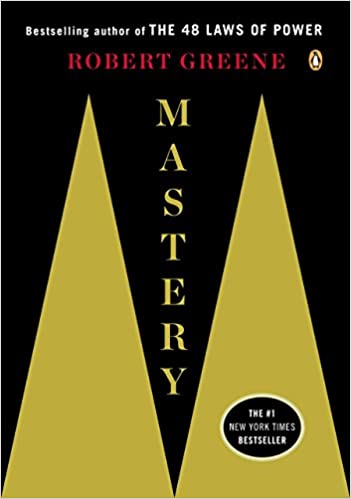Thinking of picking up a new skill but not sure how to tackle it? Or you may have already tried several methods but none are working as efficiently as you want them to? You’re in luck! This upcoming method guarantees quick and long-lasting results.

Mastery
by Robert Greene
⏱ 11 minutes reading time
🎧 Audio version available
Whether you’re a high school or college student, working in the professional world, or you just want to pick up a skill in your everyday life, this technique is a life change. What makes it so different from others is that it nearly entirely stops memorization from playing such a large role in learning something new. Instead, it makes you understand more deeply.
The Feynman Technique is very closely related to the famous Albert Einstein saying that you don’t know something well if you can’t explain it to a child.
Richard Feynman, an American theoretical physicist, is the one who created the technique. He used it all his life without giving it a name. When he was just 15 years old, he had self-taught himself advanced algebra, analytic geometry, trigonometry, infinite series, and differential and integral calculus.
Later on, he would grow up to become an iconic pioneer in quantum computing, introduce the concept of nanotechnology, work on particle physics, and become a figure in the Manhattan Project. In 1965, he won a Nobel Prize in physics for his unparalleled work in quantum electrodynamics.
All this time, he was famously known as the “great explainer.” People hailed his peerless ability to explain and translate complicated scientific theories into simpler terms.
Eventually, he invented the Feynman Technique, which is a simple four step process for mastering any skill and understanding any topic faster than you can imagine. You can learn anything using this process.
The steps to the technique go like this:
Number one is identifying the topic and exactly what you want to learn.
Number two is trying to teach it to a child.
Number three is reviewing your explanation and nitpicking it for confusion.
Lastly, number four is refining your technique.
Sounds simple enough, right? Let’s dive right into it!
Identifying the Subject
The first step Richard Feynman wants you to do is to take a blank piece of paper and write down exactly what you want to learn. Identify the subject and clarify in painful detail everything you want to learn about it. You can’t simply write “maths” on it, for example. You want to be as specific as possible.
What this step does is help you learn exactly where you need to look.
Teach It To a Child
Do as Einstein says and teach it to a child in simple terms. You don’t necessarily have to teach it to a child, but you want to break down the subject as if you were. You can take a notebook and– using the plainest vocabulary possible, in the simplest language– write down your understanding of the idea as if you were explaining it to someone who doesn’t understand it at all.
You can start by using a broader summary before becoming more specific. Feynman advised using as many examples as you can, as well as sceneries and analogies– which is something we’ll get to later. Again, you want to explain it in the easiest way possible. You can’t simply state facts and expect to be done in a manner so simple that even a child can get the concept.
It’s advisable to aim for your explanation to be understandable to a child around ten years old. So use as few technical terms, no jargon, and simple language as possible.
What this invaluable step does is force you to look if you understand the concept enough to explain it without overcomplicating it or skimming over any details. Even if you get this step right from the first time, move on to the third step to further cement your knowledge.
Review Your Explanation
For the third step, ask yourself these questions first:
Is your explanation simple enough for a child to understand you? Are there any gaps or holes in your knowledge? Is there something you find yourself forgetting? Did you find it difficult to come up with Step 2’s simple explanation? Did you have to use complex vocabulary or jargon? And finally, how happy are you with your knowledge and explanation?
If you find yourself unable to fully explain the concept in the simplest, non-complicated way possible, it’s time to go back to basics.
Reread everything, research, and relearn until you feel like you’re confident in your explanation.
The thing with the Feynman learning technique is that it heavily stresses how important the process of being repetitive is for learning. Chances are, no matter what you’re learning, you’re going to need to make several attempts at mastering it– whether that’s a subject or a skill.
The Feynman Technique has you returning to the source material and repeating the learning process in order to cement the knowledge in your head and opening it up as much as possible– not mindlessly memorizing facts and stats.
If you find a gap in your explanation in Step 2, revising your source material further solidifies what you’re learning.
It may take several iterations before you’re able to get it. But you know what? That’s actually good. It’s amazing because the more you review your explanation and refine it, the more your understanding of the concept will deepen and stay with you.
An extra trick you can use is asking the age-old question that children often like to ask: Why? With every fact you state, follow the thread of whys and see if you can answer or not. If not, you’ll know where you need to revise.
What this step does– by making you learn and relearn what you’re missing– is make you continuously refresh your knowledge instead of memorizing it once and getting up.
Also, you’re actively engaged in what you’re doing. This also relates to the second step as you use examples, analogies, and scenarios. Oftentimes, we learn in a passive way, memorizing information without facing a challenge.
When you do this, this active participation in your own learning, you’re doing more than committing details to memory. You’re filling in gaps where your knowledge doesn’t reach. You’re coming up with reasoning for each point. And by eventually creating your own simple summary, you’re committing the knowledge, but this time, it’s for your long-term memory.
You are also increasing your capacity to learn. Think about the feeling you get when first reading a textbook. It feels like you’re looking at jargon the first time. However, the second time around, the terms are a little clearer. By the third time– aka the third step? You’re able to pick up on things you never thought of before.
Related: How to Successfully Learn New Skills Later In Your Career (Simple Guide to Learning)
Refine Your Explanation
Now that you have relearned all that you missed the first time, it’s fine to go through your knowledge with a fine comb and refine your explanation to perfection. This is the part where if you find yourself unable to escape using complex vocabulary words or terms, make it a challenge to rewrite them in simpler terms.
Remember, the point of the Feynman Technique is to explain the concept to someone who doesn’t have the same knowledge base you have.
If you need to, imagine that you’re explaining things to a child again. Use simple language, examples, pictures, maps, and easy analogies. To quote Feynman,
“If I cannot explain in a simple way, the problem lies in my understanding of the topic, not my teaching abilities.”
When you’re refining your explanation, using more analogies is a life-changer. Analogies are always easy to explain and easier to remember. If you find yourself stuck in recalling a difficult concept, an analogy will help you. The good news is that most learning material already has some analogies. If not, either look it up online or invent one yourself.
And that’s it! At the end of the day, remember that you’re learning this new skill for yourself and no one else. It’s important to be passionate about what you do and to love it. As Feynman said himself, “Fall in love with some activity, and do it! Nobody ever figures out what life is all about, and it doesn’t matter. Explore the world. Nearly everything is really interesting if you go into it deeply enough. Work as hard and as much as you want to on the things you like to do the best. Don’t think about what you want to be, but what you want to do. Keep up some kind of a minimum with other things so that society doesn’t stop you from doing anything at all.”
What Is Snapreads?

With the Snapreads app, you get the key insights from the best nonfiction books in minutes, not hours or days. Our experts transform these books into quick, memorable, easy-to-understand insights you can read when you have the time or listen to them on the go.



